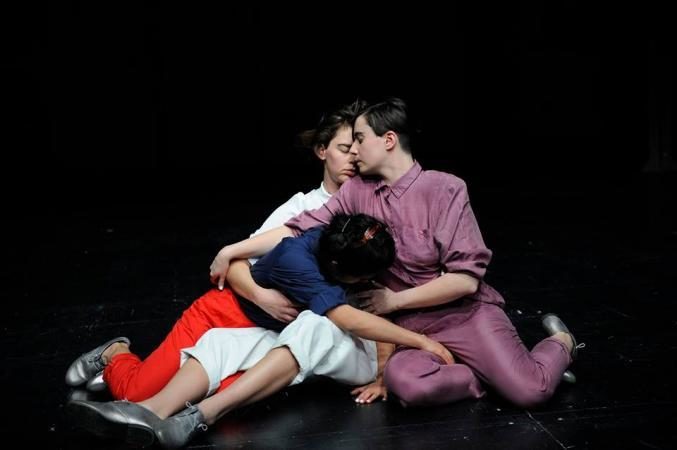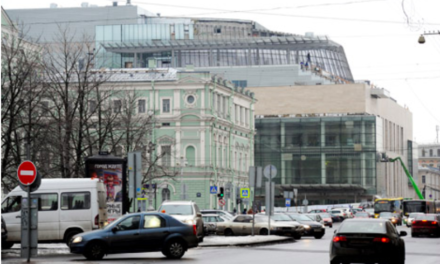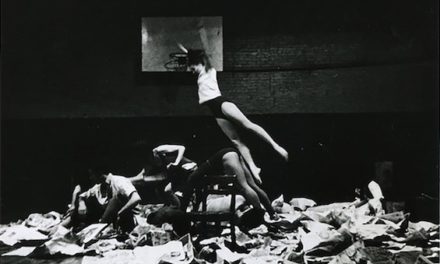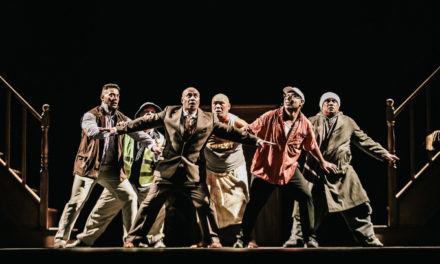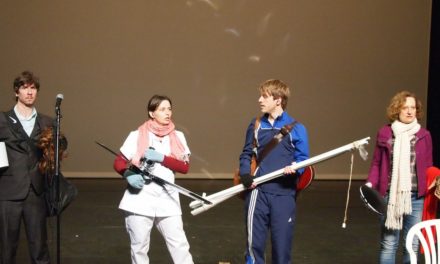From March 23 to 25, Warsaw’s Nowy Teatr, together with the Adam Mickiewicz Institute, presented “Generation After”—a showcase of 16 performances that explored the latest artistic impulses among Polish dance and theatre artists today.
The curators for “Generation After” included Piotr Gruszczyński, Nowy Teatr’s dramaturg; Karolina Ochab, its director; and Mateusz Szymanówka, a Berlin- and Warsaw-based curator, dramaturg, and researcher of Polish dance. Their selections drew from the recent repertory of Nowy Teatr and the festival’s Warsaw partners—the State Jewish Theatre, Komuna//Warszawa, the Institute of Music and Dance, Teatr Studio, and TR Warszawa—as well as kolektyw1a of Poznań, the Maat Theatre Project of Lublin, and other Polish arts organizations. The team also cooperated with the French curator and producer Nathalie Vimeux.
The program of “Generation After” was marked by a self-awareness of the act of performance and a curiosity around the performer’s presence within it. Anna Karasińska’s Ewelina’s Crying (Ewelina płacze, 2015) mines perceptions and realities of theatre actors as it playfully blurs the lines between the performers and their characters—who are also performers themselves. The dance performance Make Yourself (Zrób siebie, 2016), helmed by the choreographer-performer Marta Ziółek, is an experiment in corporeal transformation, a poly-stylistic, self-described “trip of sorts that turns the body into a machine.” One Gesture (Jeden Gest, 2016) explores sign-language communication and culture with an ensemble of Deaf actors, directed by the hearing theatre and visual artist Wojtek Ziemilski.
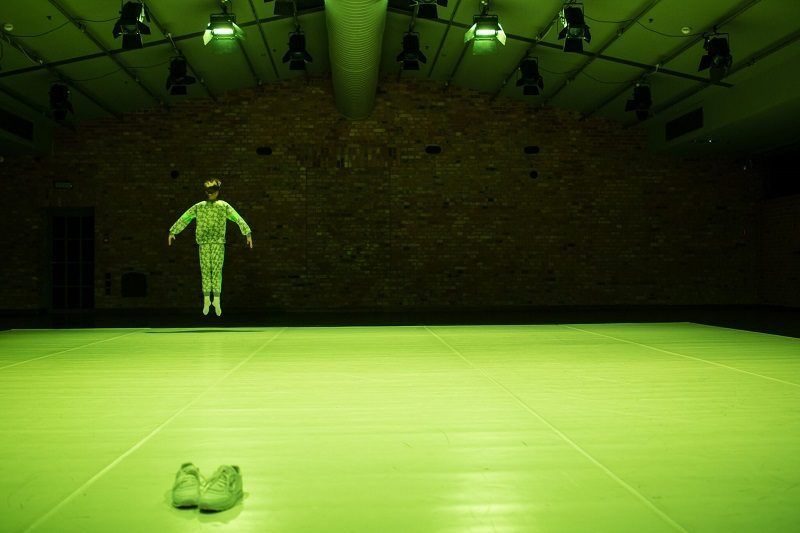
TOTAL, by Paweł Sakowicz; produced by Art Stations Foundation, Poznań (2015); part of Nowy Teatr’s “Generation After” showcase, Warsaw (2017). Photo credit: Jakub Wittchen
Nowy Teatr released the following statement about the showcase in Polish on its website—where it introduced the artists as representatives of a “new artistic school of thought”:
Polish stages are undergoing yet another generational changing of the guard. There are artists appearing on them now, and not only young ones, who are radically altering the generative modes of artistic expression. The dance scene is also growing, raising the need for a discussion and redefinition of the medium of theatre. “Generation After” appeared at a moment of disappointment with the illusions of liberalism and neoliberalism, during a time of deep crisis for democracy—as well as for trust in political, social, and economic structures. This new age is like an after-party on a rough night, when you already have a bad hangover. Art is becoming the domain for the exploration of alternative solutions. In this post-truth era, faced with a temporary exhaustion of the potential of critical art, the strongly personalized expression of young artists is taking on a singular importance.
Notably, “Generation After” included a nearly equal number of theatre and dance pieces, with one show defined as “performance.” (This was Magda Szpecht’s 2014 Dolphin_Who_Loved_Me, which incorporates documentary theatre, movement, and new media to explore Margaret Howe Lovatt’s controversial 1960s research on dolphin-human communication.) While focused on Polish artists and their work in the context of contemporary Polish culture, the showcase’s curators also looked to a larger audience and significance. In addition to the English-language title of “Generation After,” a number of its artists have trained and/or worked outside of Poland; international festival curators were also invited as guests from across Asia, Europe, and the United States.
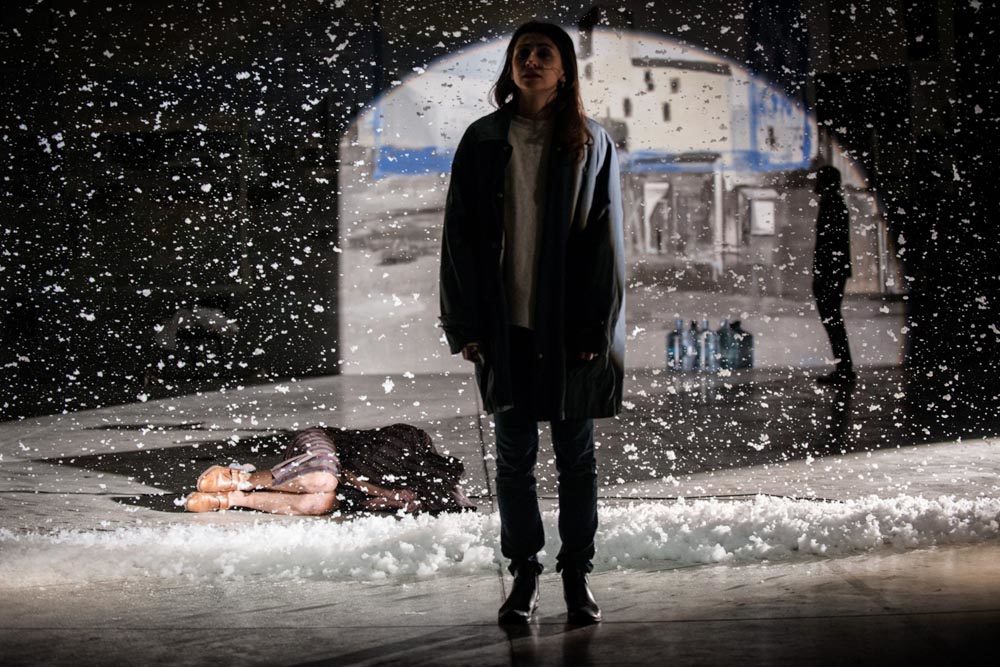
Apokalipsa (The Apocalypse), dir. Michał Borzuch; produced by TR Warszawa, Warsaw (2014); part of Nowy Teatr’s “Generation After” showcase, Warsaw (2017). Photo credit: Magda Hueckel
Nowy Teatr, or the “New Theatre,” situated in a 9,000-square-foot former industrial hall in Warsaw’s Mokotów district, is just under one year old. It has quickly become one of the most important theatres in Poland, however, as the official artistic home of the director Krzysztof Walikowski and his nearly decade-old company. The “Generation After” showcase is emblematic of the institution’s commitment to producing not only the company’s work, but also a range of new projects by Polish and international artists, along with regular cultural, literary, and performance-related events open to the community.
More information on “Generation After,” including introductions to the artists and their work, is available in Nowy Teatr’s English-language program, click here.
This post was written by the author in their personal capacity.The opinions expressed in this article are the author’s own and do not reflect the view of The Theatre Times, their staff or collaborators.
This post was written by Lauren Dubowski.
The views expressed here belong to the author and do not necessarily reflect our views and opinions.

